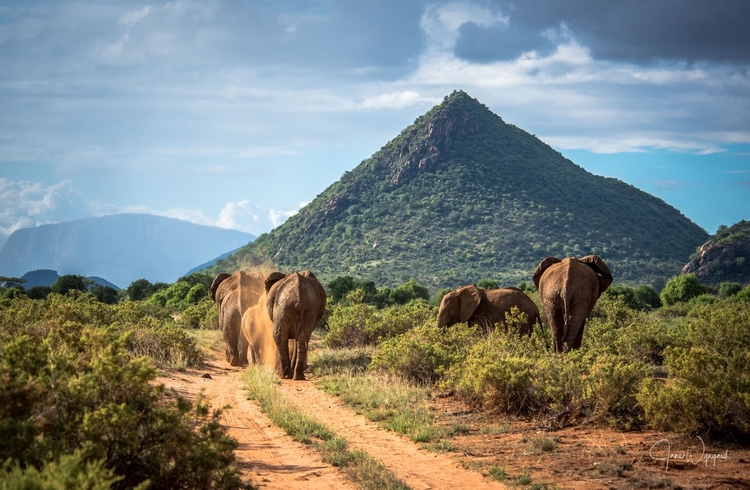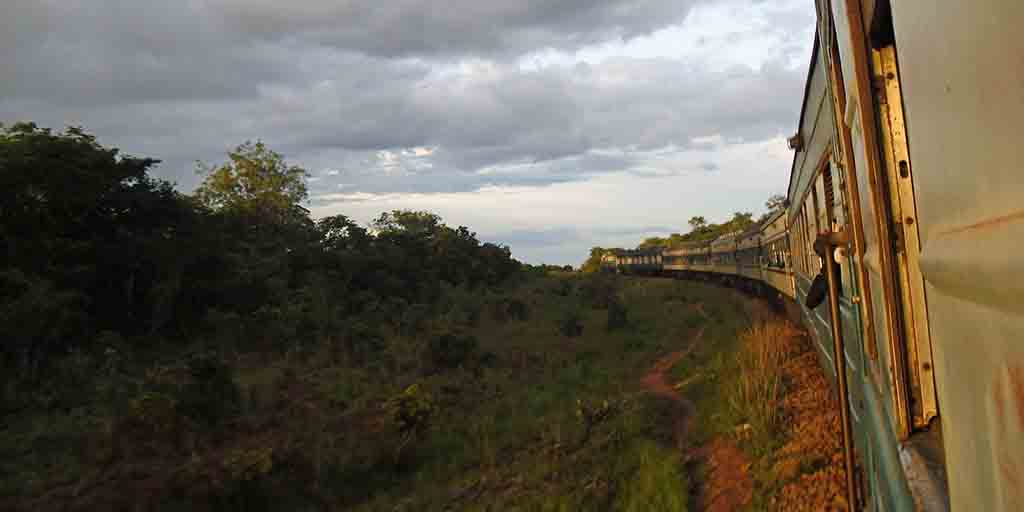Everything

ICON: Nowadays, travel is easier (and often cheaper) than ever, but with this there seems to be a boom in over tourism. How can we reduce our carbon footprint and lead more sustainable trips especially in overcrowded cities?
Phil Sylvester, World Nomads: “Travel has never been as cheap as it is right now in relative terms. When Frank Sinatra sang “Come Fly With Me” in the mid-’50s only crooners and movie stars could afford to fly. In fact, there were just 25 million international tourists at that time. In 2020 that number will be two billion! But the world is a big place and could handle that number without over-tourism if we change the way we think about travel. Over-tourism is caused by people wanting to do the same thing, in the same way, at the same time.
“We need to diversify to be sustainable.”
“If you like crusty bread, cheese and wine then any village in France will do, it doesn’t have to be the one in the guidebook, or the movie you’ve just watched.
We should use popular culture to inspire a way of travelling rather than replicate someone else’s experience. Think of what Game of Thrones has done to Dubrovnik, but have you heard of Cavtat? It’s just 20 kilometres south of Dubrovnik and is an equally beautiful old village where you can get a similar experience without teeming crowds. As more of us adopt this attitude travel becomes sustainable – the pressure on infrastructure and amenities is spread more widely and is more manageable. The opportunity and wealth are spread more evenly across a country benefiting all rather than overwhelming a few. And the traveller gets to discover the true meaning of travel; instead of ticking off a bucket list of sights along with coach-loads of other tourists, they get to meet the locals, to learn about a new culture and to interact and share.”

Are there any mistakes travellers make that contribute to an unsustainable trip?
PS: “To be truly sustainable, travel has to benefit the traveller and the host destination. Tourism should sustain a community not change it irrevocably. In many respects this is the duty of the destination not the traveller – it is up to them to decide how much tourism is enough. They are entitled to exploit their resources to create wealth from tourism, but they must be mindful that opening the flood gates could lead to them being swamped. It appears many destinations are finding this to be true. Barcelona, Venice, Amsterdam and others have movements of people saying they’ve gone too far and “tourists go home”. The challenge for a future of sustainable tourism is to find the balance.”

Can you suggest any hidden tourist destinations to take instead?
PS: “I’m the co-host along with Kim Napier of The World Nomads Travel Podcast and we’ve been surprised by the popularity of episodes where we’ve discussed really off-the-beaten-path destinations. Our listeners have loved hearing about Bhutan, Malta, Portugal, Albania, Georgia, Rwanda and Suriname.
The last three on that list are my picks for hidden destinations. Russians have been holidaying in Georgia from since before Soviet times, but it’s now gaining popularity with westerners. It is part of the Caucuses and the mountain range creates alpine scenery to challenge Switzerland.
“It also has an ancient food culture with the cherry on top of being the birthplace of wine!”
Bad reputations are easily won and hard to lose, a case in point being Rwanda which is still associated with a shocking genocide even though it occurred 26 years ago. Rwanda has reinvented itself as a premier wildlife destination (gorillas in the mist anyone?). It is tackling sustainability by shunning mass travel and opting for a luxury experience.
Finally, Suriname. Where is it you ask? On a continent that is divided 50-50 into Spanish and Portuguese speakers it is the only Dutch speaking country. Wedged between Venezuela and Brazil on the Atlantic Coast of South America, it is the Amazonian interior that is the most intriguing. The Captains of the Rainforest are an ethnic grouping descended from slaves who escaped from the plantations started by the Dutch and hid deep in the jungle. They are now forging a sustainable life based on eco-tourism and protection of the rainforest.”

What are the best value destinations of 2020? How is this equated?
PS: “The top five most popular destinations of our travellers haven’t changed in the 10 years I’ve been at World Nomads: USA, Thailand, Japan, Europe, Australia, and I don’t see that changing much. But I think the growth in travel to South America is being driven by value. Places like Thailand are not as cheap as they once were, and there’s a growing sense of “been there done that”. But South America is cheap, exciting, increasingly safe and exotic… a little like Southeast Asia was 25 years ago.”
What advice can you give for travel safety?
PS: “We’re lucky to live in one of the safest countries on Earth. It’s pretty rare to find a place that’s dangerous. The concept of being “on the wrong side of the tracks” is strange to us. But that’s not always the case overseas. You need local knowledge. We have an entire travel safety section with tips and advice written by locals and those in the know, but when you’re in a place check with a trusted local about the potential trouble spots. Chat to the hotel reception desk about potential trouble spots, any parts of town to avoid, or common scams to watch for.”

Solo travel is booming. Where would you suggest these travellers check out next?
PS: “The biggest challenge for solo travellers has to be the dreaded “single supplement” – the financial penalty they pay for simply being solo. Which is why for the last two years World Nomads has joined with Solo Traveler World and sponsored their solo travel awards which recognise travel providers who go out of their way to promote solo travel without imposing a financial penalty. Check them out.”
What makes World Nomads different from other travel insurance?
PS: “I’m sure most people’s experience of a travel insurance company is handing over their money and never hearing from them again. World Nomads is the opposite of that. Our mission is to be your constant travel companion, with you on every step of your journey and that means being a resource for you when you’re looking for travel inspiration, then helping you learn more about a destination, navigating the pitfalls and being your safety net while you’re travelling. Even after you return home we want to help you share your travel stories and inspire others which is why we offer scholarships and online learning in travel photography, writing and filmmaking.
“To us, travel is a way to make the world a better place through responsible, mindful travel that has purpose.”
Are there any facts you’ve discovered whilst working with World Nomads that many people may find surprising?
PS: “Things don’t go pear-shaped as often as you fear, but occasionally when they go bad they do so in spectacular ways you could never dream of happening. Like the British customer who was teaching English in Cambodia and riding her motorbike back to the school after a lunch break when an illegal gas bottle filling facility exploded in a fireball. Talk about wrong place at the wrong instant.”
One thing everyone should try or experience at least once?
PS: “I like the gospel according to US travel writer Daniel Scheffler; “thou shalt talk to strangers”. Put your fears aside and talk to the locals. I’m always heartened to find how similar people are around the globe: we all love our children, loathe our bosses and (mostly) want to do the right thing. Learning how each of us goes about that is the joy of travel.”